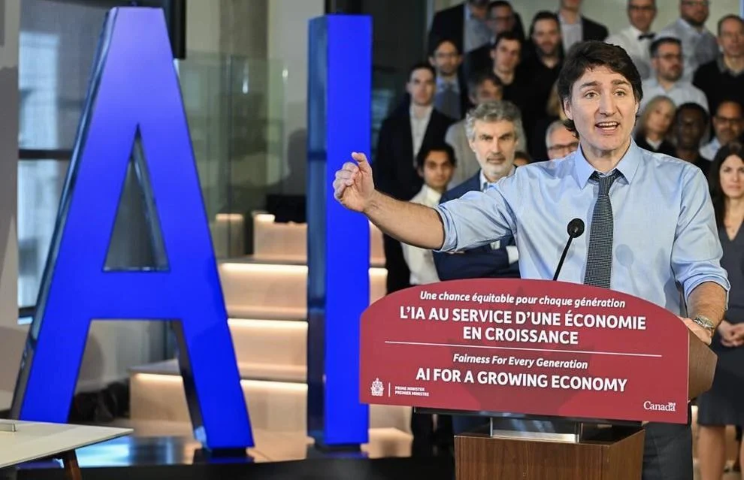
Worried artificial intelligence is coming for your job? So is the federal government — enough, at least, to set aside $50 million for skills retraining for workers. Prime Minister Justin Trudeau speaks during an announcement on innovation for economic growth in advance of the 2024 federal budget in Montreal, Sunday, April 7, 2024. THE CANADIAN PRESS
In Ottawa, the federal government has earmarked $50 million for worker retraining amid concerns about the impact of artificial intelligence (AI) on employment. This allocation is part of a broader $2.3 billion investment aimed at fostering AI adoption and development in Canada.
The initiative aims to support workers in sectors and communities vulnerable to AI-related disruptions by providing them with new skills training through the Sectoral Workforce Solutions Program.
According to Joel Blit, an economics professor at the University of Waterloo, AI's emergence heralds significant economic and societal transformations, with potential job losses and creations leading to a transitional period.
While AI jokes predate its widespread adoption, the prevalence of systems like ChatGPT has intensified concerns among workers. A briefing note for Finance Minister Chrystia Freeland warned that around 40% of all working hours could be affected by generative AI, particularly impacting sectors such as banking, insurance, and energy.
While the federal budget highlights the creative industries as a sector covered by the retraining program, concerns persist about the broader implications of AI across various occupations. The Canadian Labour Congress emphasizes the need to consider AI's implications for all jobs.
Blit explains that AI systems, including large language models, can perform various tasks previously reserved for humans, potentially affecting individuals in white-collar professions like marketing, healthcare, law, and accounting.
Hugh Pouliot of the Canadian Union of Public Employees underscores the vulnerability of clerical and customer service jobs to AI-related disruptions.
While the government has utilized AI in nearly 300 projects, Viet Vu from Toronto Metropolitan University's the Dais suggests that AI's impact on the creative industry need not be negative if adopted responsibly.
Vu emphasizes the importance of computational thinking and data-related skills in worker retraining efforts, given AI's reliance on data.
Critics argue that the $50 million allocation falls short of the resources needed to address the profound changes AI will bring to the job market. Valerio De Stefano from York University suggests exploring forms of unconditional income support like basic income and proposing contributions from AI companies and profit-increasing employers to mitigate the impact on workers.
The debate underscores the complexities of addressing AI's impact on employment and the need for comprehensive strategies to ensure equitable outcomes for workers in the face of technological advancements.















